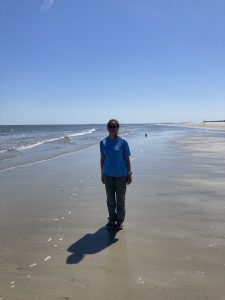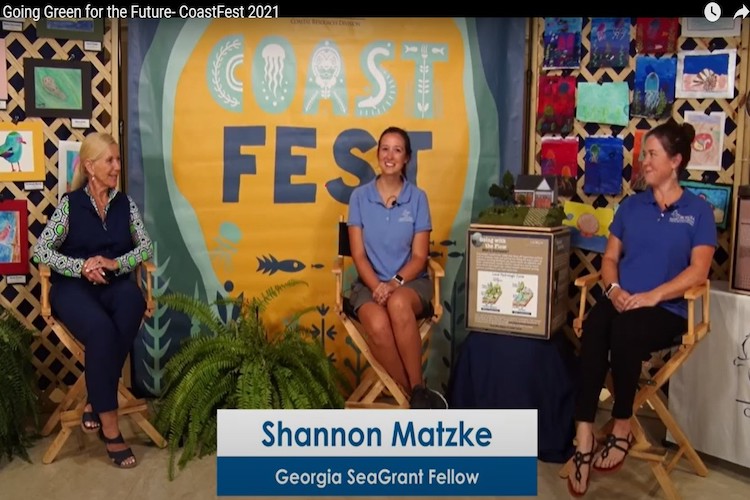As a Marine Extension and Georgia Sea Grant State Fellow working with the Georgia Department of Natural Resources, Coastal Resources Division (GA DNR CRD), I have the opportunity to learn about different aspects of what goes into managing our state’s natural resources. I’ve joined botanists to assess habitats, plant endangered species, and remove invasives; I’ve spent days in the salt marsh observing UAV flights that are monitoring marsh health; and I’ve even tagged along with permitting staff as they approve applications for dock building and mark jurisdictional lines. While these have all been great learning experiences, the bulk of my fellowship is based in the Georgia Coastal Management Program (GCMP). The GCMP is a section of the GA DNR CRD that works to balance coastal zone development with natural resource preservation. GCMP includes nature-based infrastructure research and implementation, coastal hazards planning and Green Growth encouragement. My fellowship is primarily focused on the Green Growth area of the GCMP.
The GCMP’s Green Growth program is committed to reducing pollution along the Georgia coast, especially pollutant sources that are harder, or impossible, to pin down an origin. One example of this is stormwater runoff, which occurs when rain hits impervious surfaces (hard areas like pavement and rooftops that do not allow for water infiltration into the ground) and picks up pollutants on its journey, depositing them into nearby water bodies.

The fellowship has given Shannon the opportunity to visit some of Georgia’s barrier islands. Here, she is pictured on Sapelo Island during a visit to discuss native plants and flooding with staff from the Sapelo Island National Estuarine Research Reserve.
Stormwater runoff can be a tough problem to tackle since its sources are so broad, but I’ve gotten to see many of the ways that the GCMP works to slow this type of pollution. Coastal residents are invited to participate in rain barrel workshops hosted by the GCMP. These workshops provide residents with information about stormwater management and water conservation, and participants are able to build their own rain barrels that they can take home and use to collect rainwater. I’ve gotten to help with a few of these workshops, and I’ve started thinking about how I could start to conserve water in my own life. I am part of a community garden in Savannah that is open to anyone and is nearly free, save a dollar or two a month for the water bill. Learning more about rain barrels has inspired me to build some for my own community garden so that it can be totally free of charge. The rain barrels would help to reduce the flooding that occurs after a heavy rainstorm!
The project that I have been most involved in throughout my fellowship is the revival of the Georgia Clean Marina Program. Together with UGA Marine Extension and Georgia Sea Grant and the Georgia Marine Business Association, I have worked with GA DNR CRD staff to update the program and meet with marina managers to figure out how to make this a sustainable and successful initiative. I’ve learned the ins and outs of stakeholder processes and have worked to make connections with other states who have Clean Marina Programs. This has been such a valuable experience for me, and I know that this project, along with the other opportunities that I have had during my fellowship, will serve me well as I enter my career.

